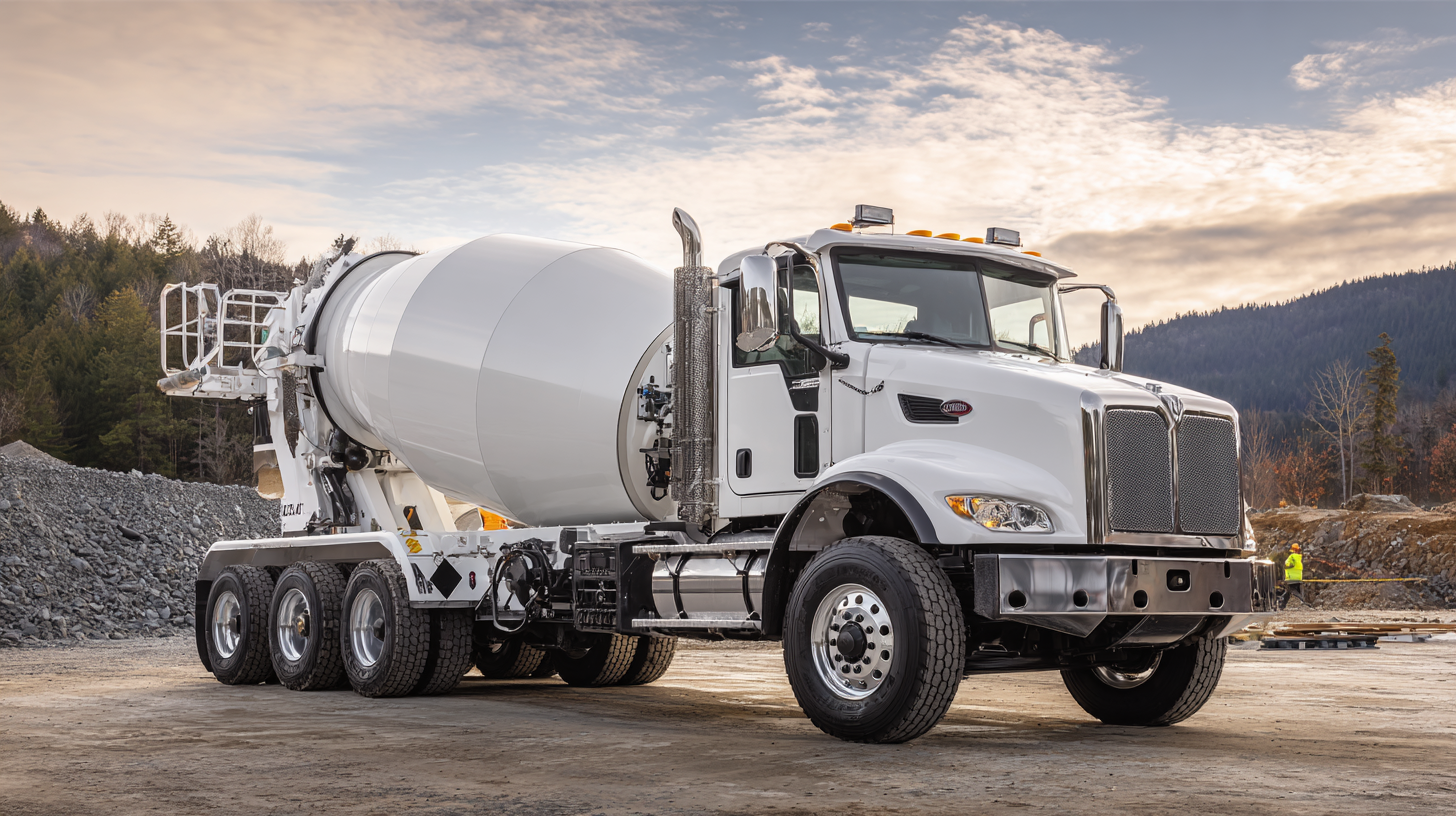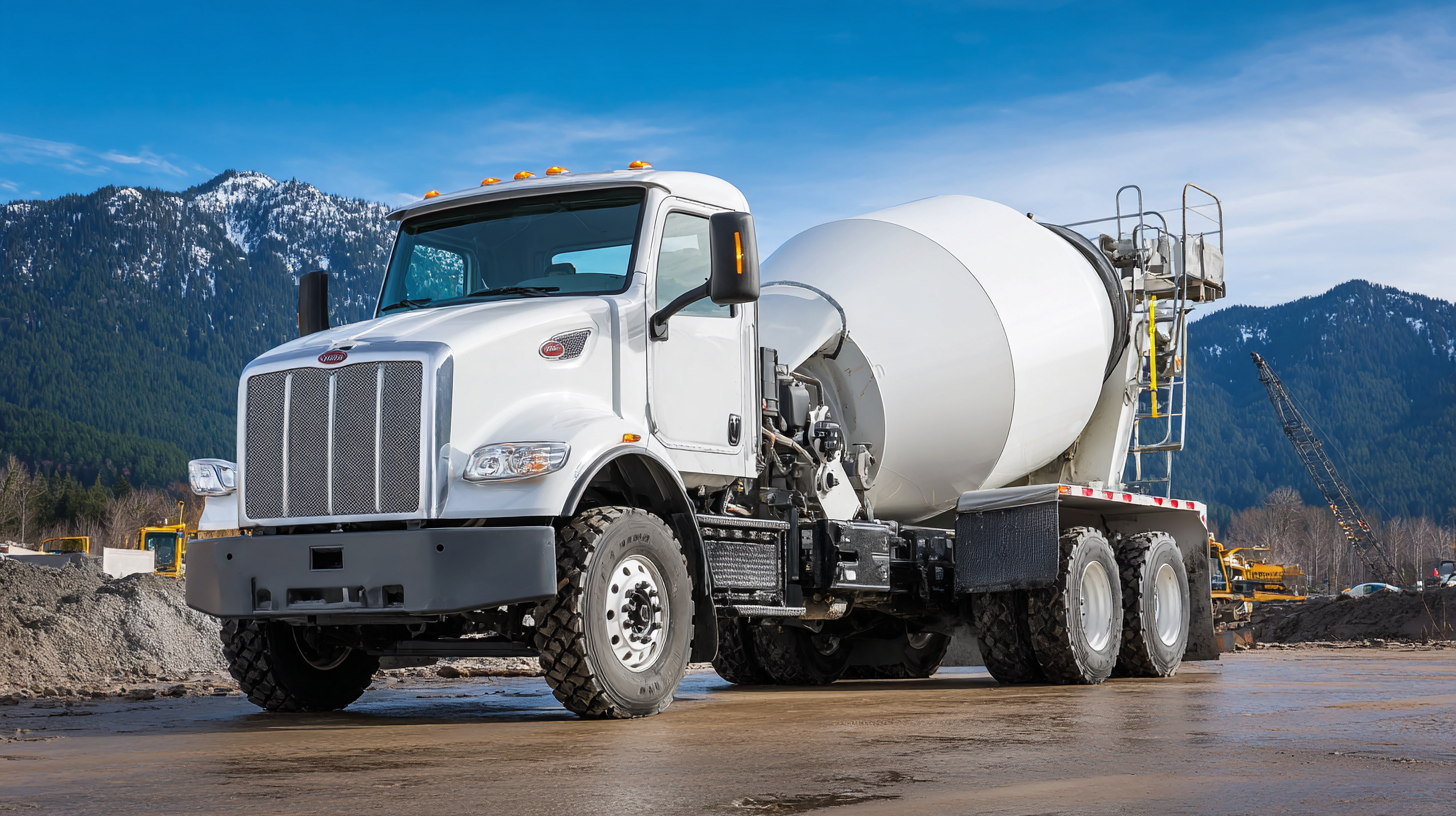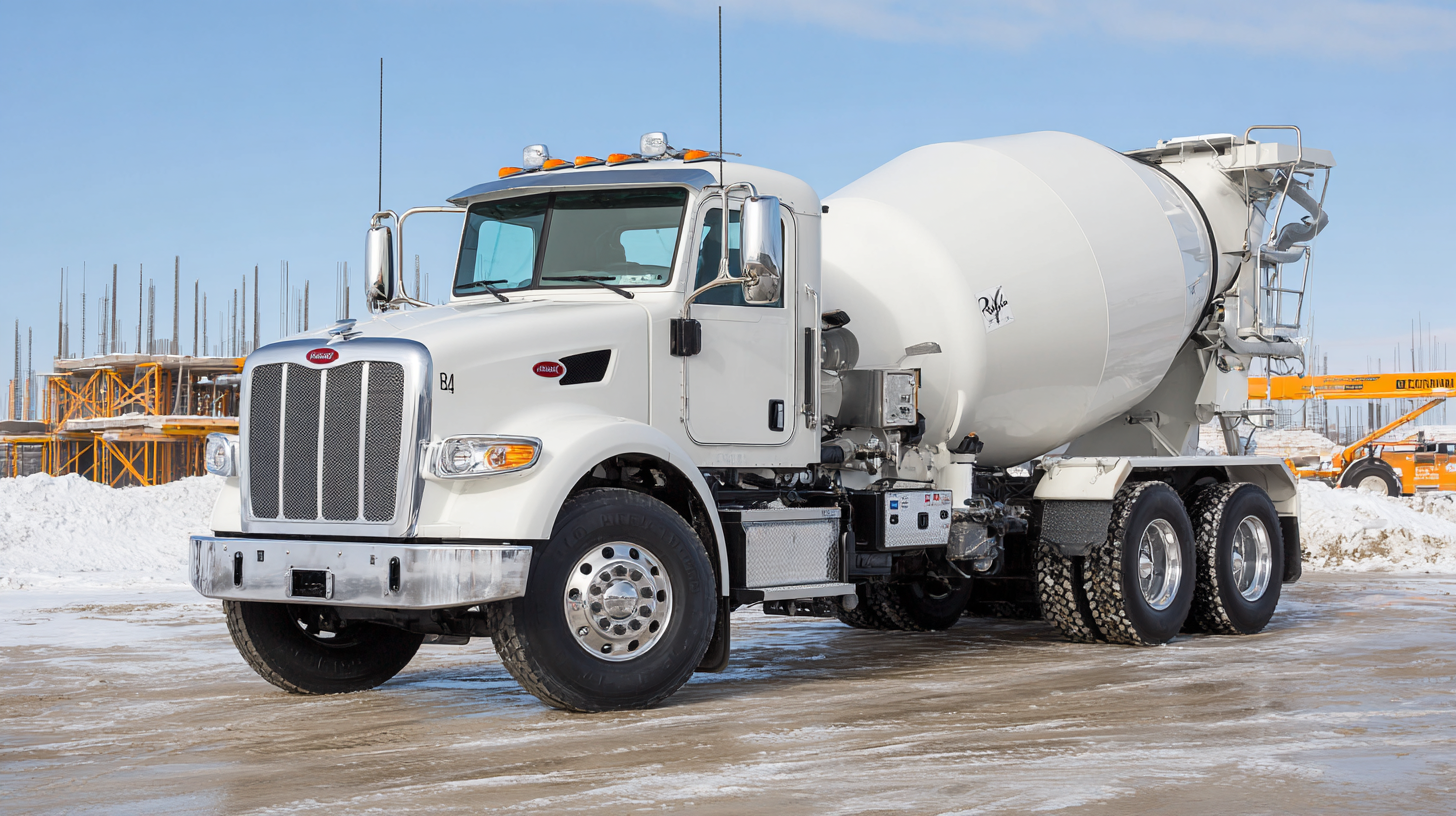In the ever-evolving construction industry, the demand for efficient and reliable transportation of concrete has led to significant advancements in the design and functionality of ready mix concrete trucks. As we delve into the best ready mix concrete trucks for 2023, it is essential to consider both the efficiency statistics and cost comparisons that these vehicles bring to the table.
Industry expert John Smith, a leading authority in concrete transportation, states, "The right ready mix concrete truck can drastically reduce project timelines and costs, making it a pivotal component in modern construction."
In 2025, we can anticipate further innovations in this space, with manufacturers focusing on sustainable materials and technology integration. The role of a ready mix concrete truck extends beyond just transportation; it embodies the capacity to streamline operations and enhance productivity on construction sites. By evaluating the best options in today's market, contractors can make informed decisions that will not only satisfy client needs but also enhance their operational efficiencies.
This article examines the top contenders in the ready mix concrete truck category, highlighting their features, performance metrics, and overall cost-effectiveness. As we navigate through the various offerings, it becomes evident that investing in the right ready mix concrete truck can serve as a game-changer for construction businesses looking to thrive in a competitive environment.

When selecting a ready mix concrete truck in 2023, certain features play a pivotal role in enhancing efficiency and performance on job sites. One of the primary attributes to consider is the capacity of the truck's drum. Most modern trucks offer various sizes, typically ranging from 6 to 12 cubic yards. A larger capacity not only reduces the number of trips required but also maximizes productivity. Another crucial feature is the concrete agitation system; it ensures the mix remains uniform, preventing premature setting and maintaining workability until the concrete reaches its destination.
Moreover, advancements in technology have made GPS tracking and telematics standard in many ready mix concrete trucks. These features allow for real-time monitoring of delivery routes and fuel consumption, enabling companies to optimize operations and reduce costs. Safety features, such as rear-view cameras and automatic braking systems, are also essential, providing improved visibility and reducing the risk of accidents on busy job sites. Investing in trucks equipped with these key attributes will not only enhance the overall efficiency of concrete delivery but also contribute to better project management and client satisfaction.
 When selecting a ready mix concrete truck, understanding key efficiency metrics is crucial. These metrics not only impact operational effectiveness but also determine long-term cost savings. Factors such as fuel efficiency, load capacity, and maintenance costs should be prioritized in the evaluation process. For instance, trucks with higher load capacities can reduce the number of trips required to transport concrete, thereby optimizing fuel use and time. Additionally, considering newer models equipped with advanced technology can lead to better fuel efficiency, having a significant influence on overall operational costs.
When selecting a ready mix concrete truck, understanding key efficiency metrics is crucial. These metrics not only impact operational effectiveness but also determine long-term cost savings. Factors such as fuel efficiency, load capacity, and maintenance costs should be prioritized in the evaluation process. For instance, trucks with higher load capacities can reduce the number of trips required to transport concrete, thereby optimizing fuel use and time. Additionally, considering newer models equipped with advanced technology can lead to better fuel efficiency, having a significant influence on overall operational costs.
In light of the growing emphasis on sustainability, it's essential to examine the potential for electric concrete trucks in the market. Various support policies aimed at promoting electric vehicles indicate a shift in the automotive industry that could extend to heavy-duty applications like concrete transportation. Assessing metrics such as charging time, battery range, and sustainable technology integration will be vital for businesses looking to adopt environmentally friendly practices while maintaining efficiency. By strategically analyzing these metrics, companies can make informed decisions that align financial viability with eco-friendly initiatives.
The ready-mix concrete market is poised for significant growth, driven by increasing urbanization and infrastructure projects. Off-site production currently dominates the market, accounting for a substantial 73.2% share. This approach not only enhances efficiency but also helps reduce waste, aligning with the sustainable practices increasingly demanded in modern construction. As the market continues to evolve, understanding the cost breakdown associated with ready-mix concrete trucks becomes crucial for contractors and builders.
The setup costs of ready-mix concrete plants vary widely based on geographic location and specific market conditions. Reports indicate that in regions like Saudi Arabia, the market size is expected to grow from USD 5.2 billion in 2025 to USD 8.0 billion by 2032, reflecting a compound annual growth rate (CAGR) of 6.4%. Additionally, the transition to electric concrete trucks is under discussion, as the economic implications of shifting from diesel require careful consideration to ensure viability in future operations. Each of these factors contributes to the unique landscape of expenses surrounding ready-mix concrete transportation and production, essential knowledge for industry stakeholders.
| Truck Model | Capacity (Cubic Yards) | Fuel Efficiency (MPG) | Average Cost ($) | Maintenance Cost/Year ($) | Delivery Range (Miles) |
|---|---|---|---|---|---|
| Model A | 9 | 8 | 150,000 | 2,500 | 300 |
| Model B | 10 | 7 | 160,000 | 2,200 | 350 |
| Model C | 8 | 6 | 140,000 | 2,800 | 250 |
| Model D | 12 | 9 | 170,000 | 3,000 | 400 |
| Model E | 11 | 8.5 | 165,000 | 2,750 | 375 |
When it comes to the construction industry, choosing the right ready mix concrete truck can significantly impact efficiency and overall project costs. In 2023, we see a variety of models that lead the market, each with unique features and performance metrics. Brands like Freightliner, Kenworth, and Mack offer robust options, combining durability with advanced technology to optimize delivery times. Comparing capacity, mixing technology, and fuel efficiency among different truck models provides insight into which vehicle might be best suited for your specific needs.
Tips for selecting the best ready mix concrete truck include considering the truck's weight capacity and engine specifications. It's essential to factor in the volume of concrete you typically require and the terrain of your delivery routes. Additionally, keeping an eye on maintenance costs is crucial, as some models may appear economical upfront but require frequent repairs that add to their total cost.
Moreover, investigate the availability of parts and service support for each brand. Reliable after-sales service can save significant downtime, ensuring smoother operations. Reading user reviews and seeking recommendations from industry professionals can also guide you towards making an informed decision, ultimately enhancing your construction efficiency and project success.
The future of ready mix concrete trucks is poised for significant advancements by 2025, driven by innovations in technology and increasing demands for efficiency and sustainability. Manufacturers are developing trucks equipped with smart sensors that monitor concrete quality in real-time, ensuring optimal consistency throughout the delivery process. These sensors will not only reduce waste but also enhance the overall performance of the concrete, catering to the rising standards of construction projects.
Moreover, electric and hybrid-powered concrete trucks are expected to become more prevalent, aligning with global sustainability goals. The shift towards eco-friendly alternatives helps minimize carbon emissions and lowers operating costs, making these trucks more appealing to environmentally conscious companies. Integration of telematics systems will also play a critical role, providing fleet managers with data insights to optimize routes and improve fuel efficiency, ultimately transforming how ready mix concrete is delivered and consumed in construction.
